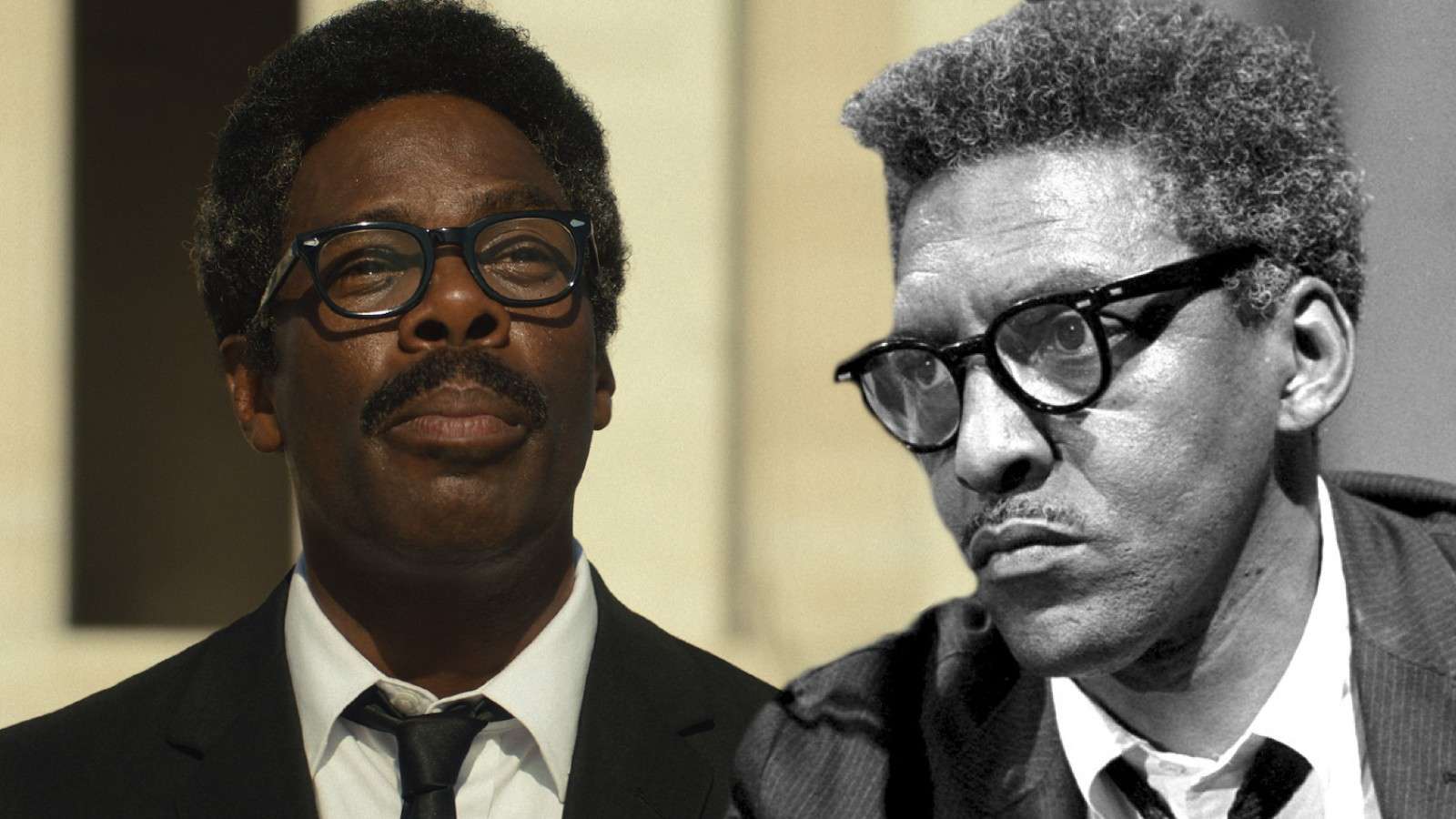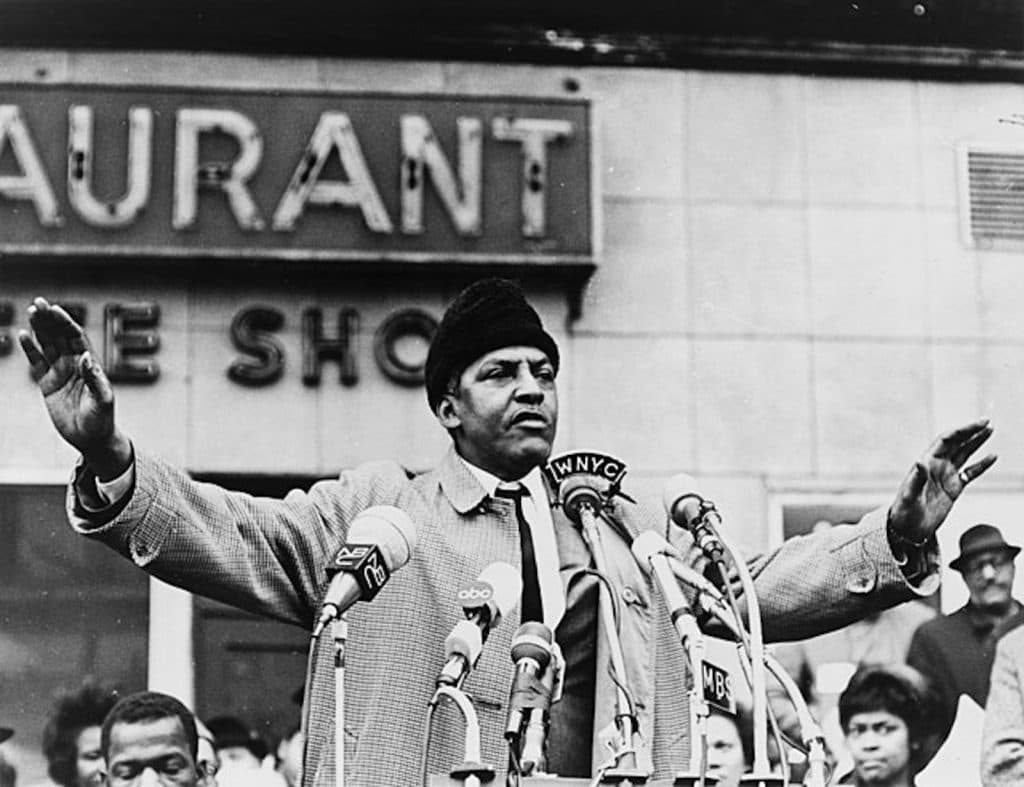Rustin: The incredible true story of the civil rights leader
 Netflix/Creative Commons
Netflix/Creative CommonsAn incredible new movie, based on the civil rights movement activist Bayard Rustin, has arrived on Netflix – here’s the inspiring true story behind Martin Luther King Jr’s right-hand man.
As per the Netflix synopsis for Rustin: “The architect of 1963’s momentous March on Washington, Bayard Rustin was one of the greatest activists and organizers the world has ever known. He challenged authority, and never apologized for who he was, what he believed, or who he desired. And he did not back down. He made history, and in turn, he was forgotten.
“Directed by DGA Award and five-time Tony Award winner George C. Wolfe and starring Emmy Award winner Colman Domingo, Rustin shines a long overdue spotlight on the extraordinary man who, alongside giants like the Reverend Martin Luther King Jr, Adam Clayton Powell Jr, and Ella Baker, dared to imagine a different world, and inspired a movement in a march toward freedom.”
With Rustin available for streaming now, read on to find out more about the unyielding activist, one who promoted non-violence and fought for the equality and dignity of everyone.
The incredible true story of the civil rights leader, Bayard Rustin
Bayard Rustin was a pivotal, though under-recognized, architect of the American Civil Rights Movement, whose commitment to justice and equality was manifested through his activism and counsel on racial equality, socialism, nonviolence, and gay rights.
Born on March 17, 1912, in West Chester, Pennsylvania, Rustin’s early life was shaped by his Quaker upbringing and the influence of his maternal grandparents, who instilled in him the principles of nonviolent resistance.
Rustin’s journey as an activist began in the 1930s but took off in the 40s and 50s, when his organizational skills shone in the realm of nonviolent protest, eventually leading to his key role as an advisor to Dr. Martin Luther King Jr. He imparted his knowledge of Gandhian tactics to King, significantly shaping the direction of the movement towards peaceful demonstration.
Perhaps his most notable contribution came in 1963 when Rustin was the chief organizer of the March on Washington for Jobs and Freedom, a monumental event that gathered over 200,000 people in a peaceful demonstration that became a cornerstone of the Civil Rights era and helped to push forward critical legislation. This event, held in August 1963, was where King delivered his iconic “I Have a Dream” speech, and it solidified Rustin’s legacy as a master strategist of social change movements.
Beyond his work with King, Rustin was involved in organizing Freedom Rides, which challenged racial segregation in the American South and played a significant role in the formation of the Southern Christian Leadership Conference (SCLC). His efforts were not limited to racial equality; Rustin was also a prominent advocate for gay rights, labor rights, and socialism, using his voice and influence to fight for a variety of intersecting causes.
Rustin’s life was not without personal struggle; as an openly gay man during a period of rampant homophobia, he faced discrimination and marginalization, which affected his public image and sometimes his role within the movement.
Freedom House senior scholar emeritus, Arch Puddington, who worked closely with Rustin at the A. Philip Randolph Institute beginning in 1971, said in a 2021 interview: “Ultimately, his sexuality kept him from playing a publicly visible role until after the March on Washington.
“Bear in mind that a major Black politician, Adam Clayton Powell Jr, the political boss of Harlem, was responsible for Bayard’s exclusion from King’s inner circle in 1960 by the simple act of threatening to circulate a fabricated story that Bayard and Dr King were sexually involved.
 Creative Commons
Creative Commons“And during the 1950s, Bayard had been expelled from a leading pacifist organization after being arrested on a ‘morals charge’ in a Los Angeles police sting operation. Even at the time of the 1963 march, moderate civil rights leaders who had worked with Bayard were unhappy when he was appointed as chief march organizer, because of his homosexuality.
“In this environment, A. Philip Randolph’s refusal to back away from his appointment of Bayard as organizer – and Bayard’s dignified response to the demagoguery of Senator Strom Thurmond on the subject – were impressive acts of principle.”
Despite these challenges, Rustin never ceased to advocate for universal human rights until his death on August 24, 1987. His strategic mind, dedication to nonviolent protest, and his belief in the dignity and equality of all people have left an indelible mark on history, even as his contributions have only more recently been fully recognized and celebrated.
Rustin is available to stream on Netflix now, and you can check out more of our Netflix coverage below:
Will there be Firefly Lane Season 3? | Beef Season 2 | Monster Season 2 | Will there be Ginny and Georgia Season 3? | Stranger Things Season 5 | Florida Man Season 2 | Obsession Season 2 | The Sandman Season 2 | The Lincoln Lawyer Season 3 | Heartstopper Season 3 | Virgin River Season 6



